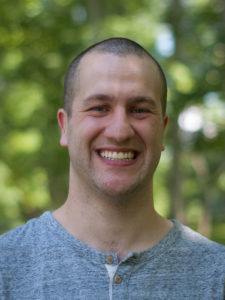Op-Ed: The MSTP Pathway to Match
 Towards the end of my clinical year, I started looking at the School of Medicine’s Pathway to Match page and was a little overwhelmed. Fortunately, the wards did prepare me to accept the bevy of new and unknown acronyms (NRMP, MSPE, ERAS), and the School of Medicine did a great job putting on programming to help students & trainees during the ensuing months.
Towards the end of my clinical year, I started looking at the School of Medicine’s Pathway to Match page and was a little overwhelmed. Fortunately, the wards did prepare me to accept the bevy of new and unknown acronyms (NRMP, MSPE, ERAS), and the School of Medicine did a great job putting on programming to help students & trainees during the ensuing months.
It turns out that applying to residency is relatively simple. A complete application, for the vast majority of programs, includes: 3-4 letters of recommendation, a personal statement, and a completed ERAS (Electronic Residency Application System; both the application and the system through which you submit it). Unfortunately, simplicity here is not a simple thing. The personal statement is something to agonize over for months; a veritable axe that can never be perfectly polished. Likewise, letters of recommendation are nerve-wracking; recommenders will manage to submit them at or past the last minute—no matter the headtime.
ERAS itself is similarly deceivingly straightforward. There are just six sections to fill out and a few documents to upload. Most of the sections (Personal Information, Biographic Information, Education, and Licensure) take little time to fill out. Things get tricky, especially for MD-PhD trainees, with the Experience and Publications sections.
In the Experience section, I was tasked with binning activities from my CV (which, like most MD-PhD trainees, is much longer than that of the average medical student) into ‘Work,’ ‘Volunteer,’ or ‘Research’ experiences. This section is similar to the activities section on AMCAS but allows for unlimited experiences. Thankfully, the system ‘clarifies’ that ‘Work’ experiences include paid work, teaching, and unpaid clinical work. Likewise, ‘Volunteer’ experiences include everything that is not ‘Research.’ Despite these clarifications, I was left with dozens of questions that no one could definitively answer. How best to convey that I like to be involved, am a team player, and someone to rely upon? Should I include undergraduate activities? After all, I spent more time practicing and playing football than I ever did on any MSTP committee. On the other end of the spectrum: how about that time I volunteered for the mini-MSTP? Does that count? What counts!?
In the Publications section, you have the chance to upload the information for all your ‘publications.’ This includes peer reviewed journal articles/abstracts, peer reviewed journal articles/abstracts (other than published), peer reviewed book chapters, scientific monographs, poster presentations, oral presentations, peer reviewed online publications, non-peer reviewed online publications, and other articles. Yikes. Similarly, I had many questions here. Does this piece count as a non-peer reviewed online publication? Should I include intramural talks and posters in my residency application? What about co-authored abstracts or posters that I didn’t present? I can’t be the only one that’s spent an enormous amount of time on someone else’s scientific project. What if I presented the same poster (with the same title) at three different meetings or conferences—is that one or three posters? Again, what counts!?
There exist few detailed resources for MD-PhD trainees filling out ERAS (or applying to residency, more broadly). This is not a fault of the program; but, rather, a product of the beast: it’s easy to advise students on the same physician-scientist training track; it’s tricky to advise professionals applying to one of 25+ different specialties. In hopes of remedying this problem, the graduating class of 2019 will be posting personal statements and ERAS tips for a wide array of specialties on a password-protected section of our MSTP website. We hope this resource will grow and help trainees to come.
As for me: my application is in the hands of program directors all across the country. We’ll see what happens. Fingers crossed.
Disclaimer: The viewpoints expressed by the authors do not necessarily reflect the opinions, viewpoints and official policies of Vanderbilt University.